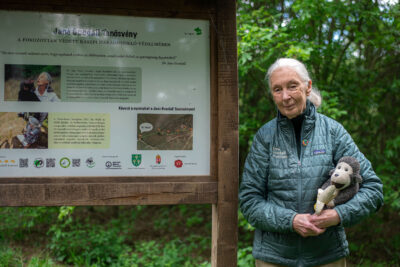
Travel Safe & Well
Silver travel: Top tips for travelling later in life
Travel among older people is booming – and the risks aren’t what you’d think, says Dr Marion Sloan
Firstly, let’s debunk the myth that age is a barrier to travel. In recent decades, there has been a shift in how older adults view retirement and wellbeing, with multi-gen trips and solo travel among over-60s on the rise. And while age-related health risks will always be a concern, these can often be mitigated by sensible preparation.
Age can also bring with it positive changes. Studies show motion sickness may actually lessen with age, making cruises and long-haul flights easier. One easy explanation is that repeated exposure to moving environments (planes, ships, etc) allows the body to acclimatise over the years. Another reason is that the motion sensors in our ears decline as we age, making us less sensitive to movement.
But there are age-related issues that we can’t ignore. While motion sickness is less of a worry, the risk of deep vein thrombosis is higher in older adults due to factors such as decreased elasticity in our veins. Prolonged sitting during travel may interfere with blood flow in the legs, causing clots, so always wear compression socks, which encourage blood circulation by applying pressure.
An ageing immune system is also usually less robust than a younger one. This is due to a decline in immune cell production and an increase in inflammation; therefore be cautious when visiting areas with malaria and other infectious diseases. Antimalarials such as Malarone, for example, can even react badly with common medications like blood thinners. Meanwhile, some jabs require multiple doses over six months to be effective (hepatitis B); others (rabies) need boosters every one or two years, so plan far in advance. Surgeries have reduced their number of travel clinics, as they aren’t cost-effective, and going private can be pricey.
Another potential complication is the impact of heat and altitude on heat-stroke risk and blood pressure. Medications such as diuretics and beta blockers increase the risk of dehydration or impair temperature regulation. Discuss any medication with your GP before travelling.
In general, speak to your healthcare provider for tailored advice, do your research and know your own body. Being informed just means that you can enjoy your adventure with peace of mind, whatever your age.
5 tips for travelling later in life
- There is an increased risk of DVT in older travellers on long-haul flights. Movement and hydration are key to reducing this. And don’t forget your compression socks!
- Running out of medication can be dangerous, and some countries place restrictions on, or may not stock, certain medications, so be sure to pack enough to cover the duration of your trip.
- Ensure that you take out a comprehensive travel insurance policy and accurately list any pre-existing health conditions for complete peace of mind. There are several age-specific travel insurance companies out there to choose from.
- Travelling in general can easily disrupt the digestive system in older travellers. Probiotics such as PrecisionBiotics Daily Good Bacteria supplement can be helpful.
- Packing a basic first aid kit can make life a lot easier when travelling. Include things such as electrolytes, insect repellent, painkillers and wound coverings.
Silver travel in numbers*
- 2 in 5: 40% of over-60s want to take a ‘gap year’ – a trip lasting between nine and 12 months.*
- £4,885: The average amount spent by baby boomers each year on travel – more than any other generation.‡
- 46%: In 2023, there was a year-on-year increase of 46% in people over 55 travelling without their significant other – and most were women.*‡
Stats from *Norwegian Cruise Line, ‡Mize and *‡Phocuswright
Dr Marion Sloan is a GP at the Sloan Medical Centre in Sheffield. All content is for informational purposes only and does not constitute medical advice, treatment or diagnosis. Consult a healthcare professional before taking action


















